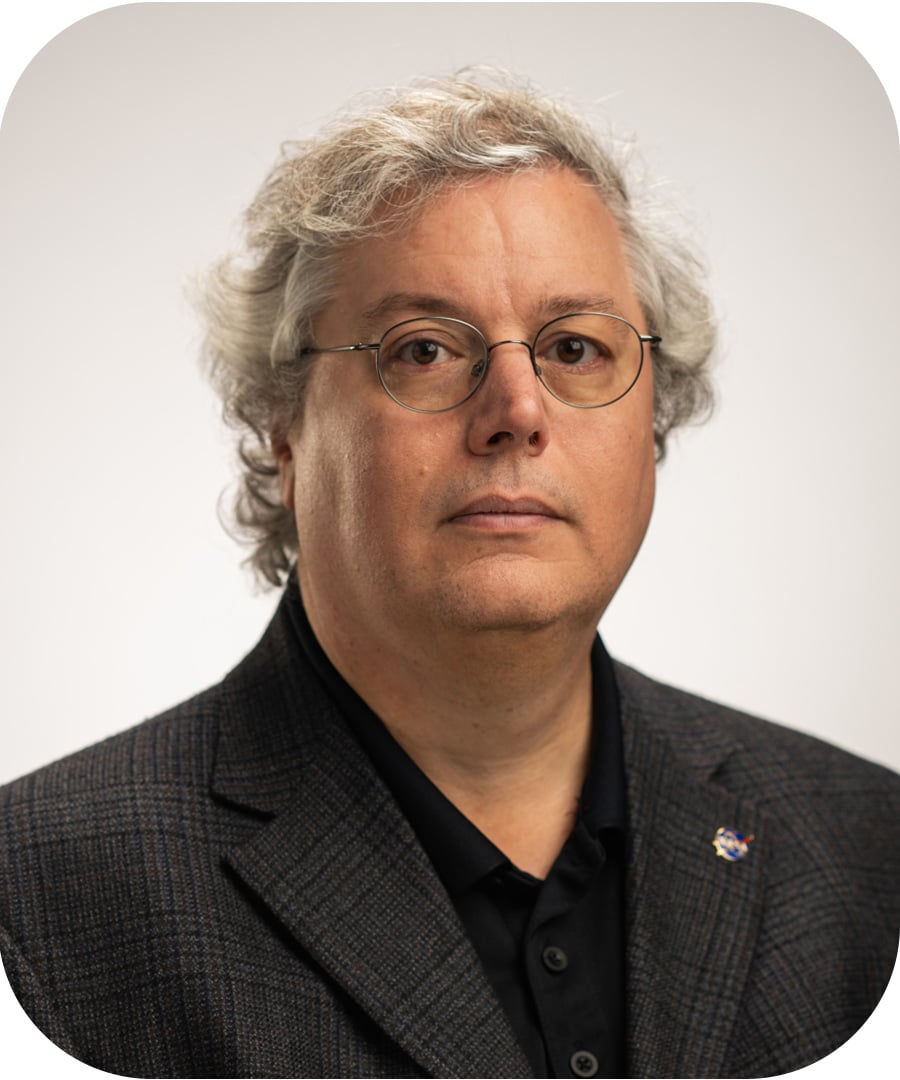Keynote speaker
Keynote speaker

Dr Luke Sollitt
Branch Chief Planetary Systems, NASA/Ames Research Centre
Dr. Sollitt is Branch Chief for Planetary Systems (Code STT) at NASA/Ames Research Center in Moffett Field, CA. STT has approximately 24 Civil Servant scientists and over 50 contractor scientists whose specialties range from lunar science to Mars, the Outer Planets, origins, Astrobiology, and even mycotecture for crewed space stations. Branch activities include modeling of planetary surfaces and atmospheres, lab work, field work and mission/instrument development. In his planetary science work, Dr. Sollitt develops instrumentation for use on the Moon and other planets by future landed robotic missions and Artemis astronauts. Other research interests include the search for water on the Moon and other planetary bodies, properties of lunar and Martian dust and the development of astronomical instrumentation for use on suborbital platforms. A co-Investigator on NASA’s SPARTA (Soil Properties Assessment Resistance and Thermal Analysis) instrument, he leads the dielectric spectrometer development.
Dr. Sollitt has worked in industry, government and academia. He served as a Senior Research Scientist at the Planetary Science Institute concurrently working first as an Associate Professor of Physics at the Citadel, then as a Program Director for the National Science Foundation. His first job out of graduate school was as a systems engineer and space scientist at Northrop Grumman. He is a space physicist by training, earning his Masters and PhD degrees from the California Institute of Technology. Dr. Sollitt served as co-Investigator for NASA’s LCROSS lunar impactor mission, having helped to originate the mission concept during his time at Northrop Grumman.
Dr Sollitt's keynote title and synopsis
Prospectors on the Final Frontier: Understanding Resource Extraction in the Coming Space Age
Resource extraction on other planetary bodies in the Solar System is widely thought to be an enabling technology for future space exploration and potentially for economic development here on Earth. Dr. Sollitt will discuss planetary environments where such extraction might be likely (e.g. the Moon, Mars, and small bodies), and some of the challenges inherent in this kind of space-based resource exploration. As examples for understanding resources and their utilization in the context of a planetary environment, Dr. Sollitt will discuss NASA’s SPARTA (Soil Properties Assessment Resistance and Thermal Analysis) instrument being developed to understand planetary regoliths, and efforts at NASA/ARC developing biomining technologies.
